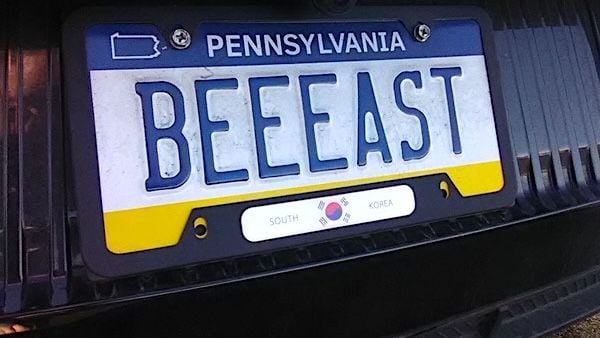License-plate reader technology was around long before artificial intelligence. But critics warn that it provides a foreshadowing of some of the dangers that could be coming.
It is the Institute for Justice that now has announced a nationwide campaign to push back against the “arbitrary and unrestrained” use of the cameras used in that tech.
Already, there are cameras across thousands of American communities, but there are major concerns about violations of the U.S. Constitution.
“The Fourth Amendment problems with this unregulated mass surveillance are only getting worse as communities around the country begin using ALPRs or expand their existing surveillance networks,” said IJ lawyer Michael Soyfer. “Nationwide, police are now using ALPR cameras to track the locations and movements of countless law-abiding people who have never been suspected of any crime.”
The campaign, called The Plate Private Project, will combine IJ’s litigation, legislation, activism and media capabilities regarding the warrantless search industry.
Private companies benefit from the campaigns to monitor all of a city’s citizenry, getting paid for cameras, monitoring, recording and more.
Flock Safety, Motorola Solutions, PlateSmart and others are involved.

“Unlike red-light cameras or speed cameras that are triggered by specific violations, these cameras photograph every vehicle that drives by and can use artificial intelligence to create a profile with identifying information that then gets stored in a massive database,” the IJ explained.
“Once that happens, officials can search the database for any vehicle they wish, all without a warrant.”
The results can reveal in an individual goes to a hospital or church, a gunshop or a friend, and how often.
“Departments around the country are automatically sharing data with each other, making it simple for police anywhere to track drivers’ movements,” the warning said.
“All of this arbitrary discretion threatens people’s privacy, security, and freedom of movement by creating an atmosphere where everyone knows they are being watched and tracked whenever they hit the road. ”
Joshua Windham, IJ lawyer, added, “Because police don’t need to obtain a warrant before searching these databases, they can search for nefarious reasons or no reason at all. As currently used, these cameras are ripe for abuse.”
Already, reports have included police using the cameras to stalk former girlfriends, sharing data with federal investigators, and providing bogus justifications for data hunts.
The IJ said its project “will propose model legislation in state legislatures to protect against warrantless ALPR surveillance, partner with local grassroots activists to help them resist the use of these cameras in their communities, and continue fighting in the courts to strengthen the Fourth Amendment’s protections against this new form of warrantless surveillance.”
Further, it will provide details to people who want to learn about the spying that goes on in their own communities.
Already, one judge has ruled in an IJ case that the use of more than 170 Flock Safety cameras confirms “a reasonable person could believe that society’s expectations [of privacy] are being violated by the Norfolk Flock system.”
Click this link for the original source of this article.
Author: Bob Unruh
This content is courtesy of, and owned and copyrighted by, https://www.wnd.com and its author. This content is made available by use of the public RSS feed offered by the host site and is used for educational purposes only. If you are the author or represent the host site and would like this content removed now and in the future, please contact USSANews.com using the email address in the Contact page found in the website menu.





